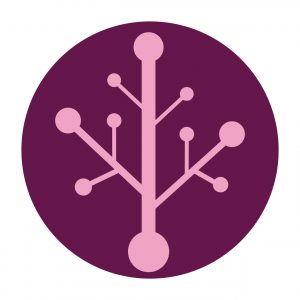My experience using the WBCSD’s Inclusive Business Challenge as a teaching tool in universities and business schools in Spain and Latin America

I want to share with you a post published at the Word Business Council for Sustainable Development´s (WBCSD) blog about the workshops and classes I have delivered in Spain and Latin America on Inclusive Business Models. You can find for info about WBCSD´s blog here.
Over the past couple of years, Guadalupe de la Mata, editor of Innovation for Social Change and Director of the Think Tank IRISThinking, has used The Inclusive Business Challenge as a teaching tool in universities and business schools in Spain and Latin America.
The tool, launched by the World Business Council for Sustainable Development (WBCSD) in early 2010, is an easy-to-use presentation and simulation package aimed at helping companies and stakeholders identify and implement models that profitably engage low-income populations across companies’ value chains and develop affordable products and services that meet the needs of low-income populations.
Guadalupe de la Mata has adapted the presentation and methodology, which is available in 4 languages (English, Spanish, Portuguese, French), to raise awareness of the role of business in development and to introduce the challenges, drivers and principles of inclusive business. She used the Spanish version of the tool in Spanish and Latin American universities and the English version in a number of International MBA programs to great effect, and has been pleasantly surprised by the interest with which it has been received.
Guadalupe conducted a first workshop at Madrid’s Universidad Pontificia de Comillas in 2011 as part of a course focusing on the social role of business and finance. Students in attendance hailed from different academic backgrounds; some were undergraduates in the last year of a business administration degree, while others were students enrolled in ICADE´s Master’s degree on international cooperation.
The workshop gave rise to very interesting discussions. In particular, participants looked at the issue from two different points of view: how can business contribute to development in a sustainable and profitable way, and how can development institutions and NGOs participate and support inclusive business strategies partnering with large companies. As a result of the workshop, several students announced their intention to make inclusive business the topic of their final thesis.
Following the success of the first workshop, the Universidad Europea de Madrid also decided to organize a similar training workshop under the framework of an academic project dubbed ‘Business Factory’, whose main objective is to present alternative career paths for final year students of business degrees. Guadalupe taught her course to three groups of students from two different campuses. She describes the experience as incredibly enriching, all the more so since participants from both European and Latin-American countries were able to share their experiences in their respective regions and countries.
This year, Guadalupe participated in a workshop to promote public-private partnerships, an event sponsored by Madrid’s local government (Comunidad Autónoma de Madrid) in collaboration with the EPIC and ISEAD business schools. The content of the workshop and results of the discussions have been published as a chapter of a book titled “The base of the pyramid,” published by Iberemprende in September 2012.
Guadalupe has also delivered several workshops and conferences in different universities and business schools in Spain and Latin America. Two, in particular stand out: a workshop organized by Escuela de Organización Industrial in Madrid for students of the Master’s program on sustainable development; and an event organized in Medellin, Colombia, for MBA students from ISEAD business school, in collaboration with its Colombian partner Prestigio. The workshop was broadcast online to students from different countries who were given the opportunity to ask questions and submit comments online.
The WBCSD is delighted that its “Inclusive Business Challenge” tool has been used so productively, and actively encourages others to replicate this experience.
More information:
- Click through the presentation below for a brief overview on The Inclusive Business Challenge
- The abovementioned training material, inspired by the WBCSD’s own tool, is available from www.innovationforsocialchange.org and www.iristhinking.org
- If you are interested in exploring Inclusive Business Models of in implementing them in your company or University you can contact Guadalupe at: guadalupe@iristhinking.org
About WBCSD
The WBCSD is a CEO-led organization of forward-thinking companies that galvanizes the global business community to create a sustainable future for business, society and the environment.
From its starting point in 1992 to the present day, the Council has created respected thought leadership on business and sustainability.
The Council plays the leading advocacy role for business. Leveraging strong relationships with stakeholders, it helps drive debate and policy change in favor of sustainable development solutions.
The Council provides a forum for its 200 member companies – who represent all business sectors, all continents and combined revenue of over $US 7 trillion – to share best practices on sustainable development issues and to develop innovative tools that change the status quo. The Council also benefits from a network of 60 national and regional business councils and partner organizations, a majority of which are based in developing countries.
By thinking ahead, advocating for progress and delivering results, the WBCSD both increases the impact of our members’ individual actions and catalyzes collective action that can change the future of our society for the better.



[…] http://guadalupedelamata.wordpress.com/2012/12/18/my-experience-using-the-wbcsds-inclusive-business-… […]
I am so grateful for your post.Thanks Again.